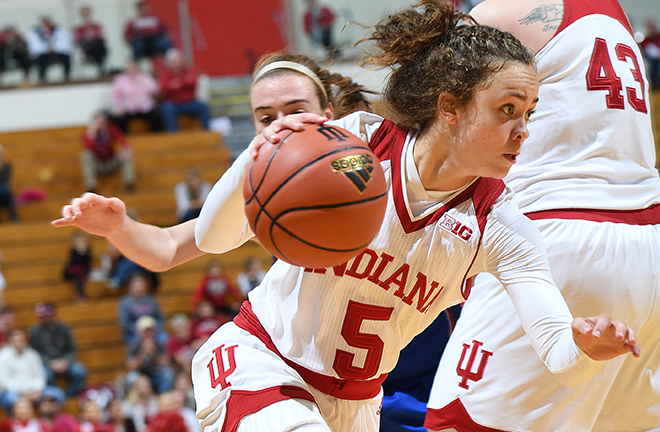Defining Athletic Attitude
We hear coaches use the word “attitude” frequently. Have you ever defined exactly what “attitude” means to you? The more clearly you can define anything, the better chance young people will understand and apply it. Clarity and brevity (with depth if needed) are critical for the learning process.
As a young coach, I was challenged by my principal who said, “you talk about attitude a lot with your players… can you define it?”
It led me to this attempt to clearly and concisely define for everyone in our programs what an athletic attitude meant. “Understand and model the Core Covenants of the team. Be aggressive, enthusiastic, confident, disciplined, and compete fearlessly. Be intelligent enough to listen and develop the ability to learn and work. Have faith in the people you are working with, don’t let your teammates down, and always put the team ahead of yourself. Maintain integrity and your sense of humor. Give your team an attitude of gratitude.”
“Understand and model the Core Covenants of the team. Be aggressive, enthusiastic, confident, disciplined, and compete fearlessly. Be intelligent enough to listen and develop the ability to learn and work. Have faith in the people you are working with, don’t let your teammates down, and always put the team ahead of yourself. Maintain integrity and your sense of humor. Give your team an attitude of gratitude.”
- CORE COVENANTS
A binding agreement where you can see visible action. Covenants set you apart. They are your cornerstones, identity, and guiding principles. Covenants are non-negotiable on great teams.
What do your covenants look like in practice, after a win, after a loss, away from the team?
- AGGRESSIVE
Be the individual and the team that is on the attack. Do not prepare or play cautiously or nervously. Approach all challenges as a positive. Make a quick recovery from your mistakes. Do you look forward to challenges or worry about competition?
- ENTHUSIASTIC
Enthusiasm is both powerful and contagious. Enthusiastic athletes and coaches come to practices and games with their motor running and ready to do their best. Do you arrive with and maintain positive, energy? Are you an encourager with your words and actions?
- CONFIDENT
Success, accomplishment, and productive preparation build confidence. It is not built through pep talks. Confidence is mostly spread through the example by the coach. True athletic confidence is carried quietly. Is your confidence based on preparation or bragging?
- DISCIPLINED
Athletically, it is best defined as focused attention and effort. Discipline equals training and choices that make punishment unnecessary and focused performance possible. Are you able to focus your energy, attention, and effort for the entire practice?
- COMPETE FEARLESSLY
Competing fearlessly means being mentally tough. A mentally tough athlete stays positive, enthusiastic, and confident, no matter what happens. They understand that mistakes made at full speed and full attention are OK, and not only can they quickly forgive their teammates, but also themselves when mistakes happen. How quickly do you recover from a mistake? Can you maintain an attack mentality?
- LISTEN & LEARN
Acquire and maintain the absolute attention of your athletes. Develop a teaching style that gets your players’ attention quickly, gives short instruction, and then gets them quickly back into action. Being “coachable” means that the athlete has learned to accept correction as a compliment. Do you look at the person who is speaking and concentrate on their words?
- WORK
Hard work should become a standard, and core covenant of the team. No one on a great team is exempt from their best effort. The degree of preparation and intensity of work expected is one of the aspects of sport over which every coach has complete control. Work, concentration, and effort are choices. Do people trust your work ethic even when no one is watching?
» ALSO SEE: How to Give an Impactful Athlete Evaluation
- FAITH IN PEOPLE
A collective responsibility exists on motivated teams. Coaches must build a level of trust and mutual respect between all levels of the team. Another measure of faith is when the athletes learn to trust their training. Trusting your training means that the athlete trusts, respects, and depends on the instruction they have received from the coach. Who do you trust completely on the team — who can you count on to give their best effort at all times?
- DON’T LET YOUR TEAMMATES DOWN
Don’t let your teammates down when it comes to your attention, effort, eligibility, or decisions away from the team. As a coach, you should constantly be able to get your players refocused by merely reminding them “don’t let your teammates down.” What do you do to not let your teammates down?
- TEAM AHEAD OF SELF

Selfishness on the team level or with any individual player will destroy the team faster than anything else will. When talking about roles, it is good to place value on all roles. It is also it is a good idea to have players talk to the coach about the roles they think they can play and the roles that they would like to “grow into.” Are you able to always put the team ahead of yourself in every decision?
- PERSONAL INTEGRITY
Integrity needs to be modeled by the coach and then taught and expected in their athletes. An athlete’s word should be trusted and they should take responsibility for all choices. Victory without honor is not victory. Does the situation determine your response or do your beliefs determine your response in every situation you will face?
- SENSE OF HUMOR
A sense of humor keeps athletic competition in perspective. Highly disciplined teams can laugh at things that are genuinely funny and then immediately refocus their full attention and effort back to the task at hand. Can you have fun without losing focus?
Attitude is a choice; choose wisely.
For more support materials go to our website – www.proactivecoaching.info. For additional application ideas email [email protected]. To bring a Proactive Coaching speaker to your school or community email [email protected]. Content provided by the National High School Athletic Coaches Association. For more information visit: nhsaca.org





